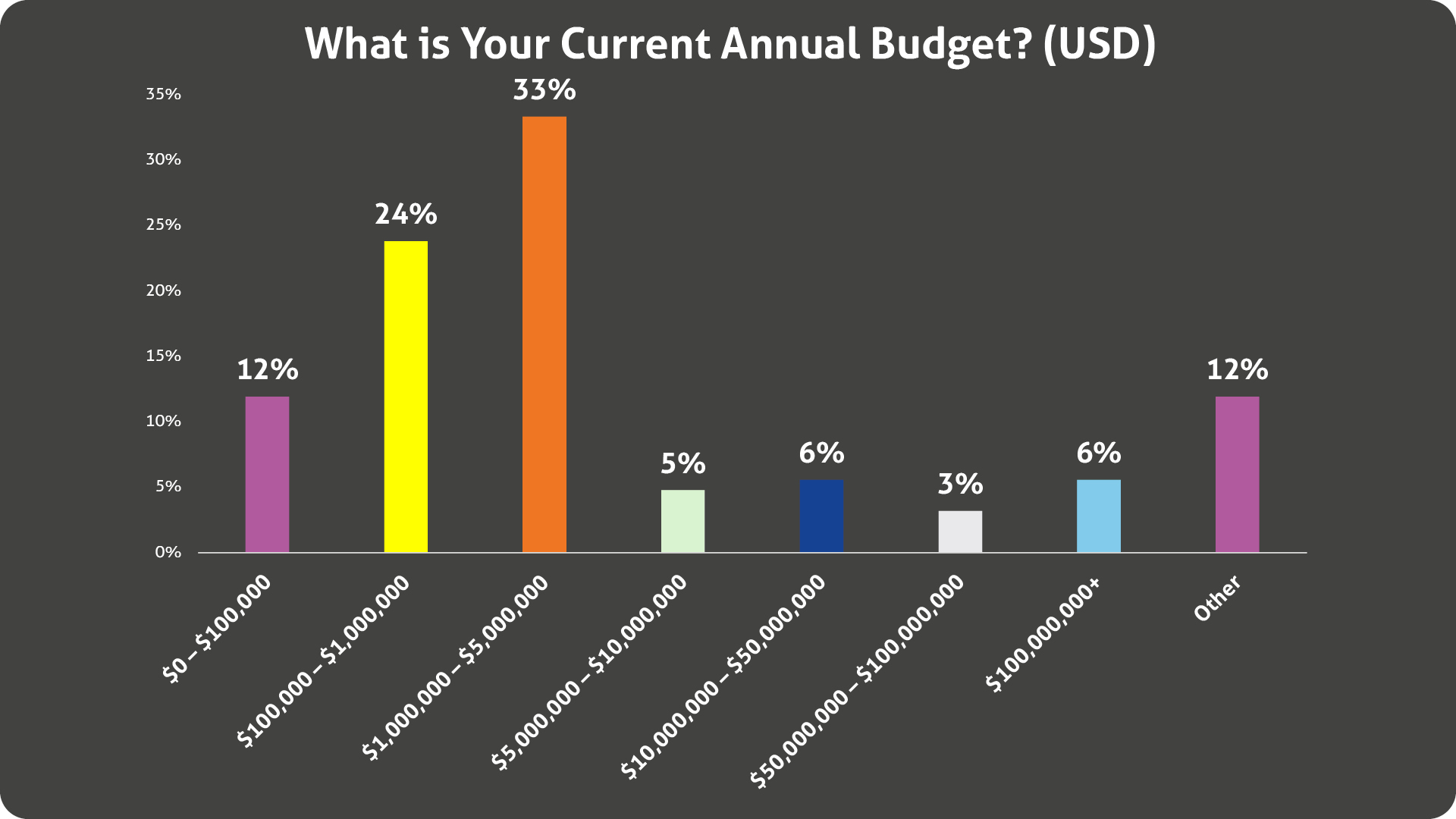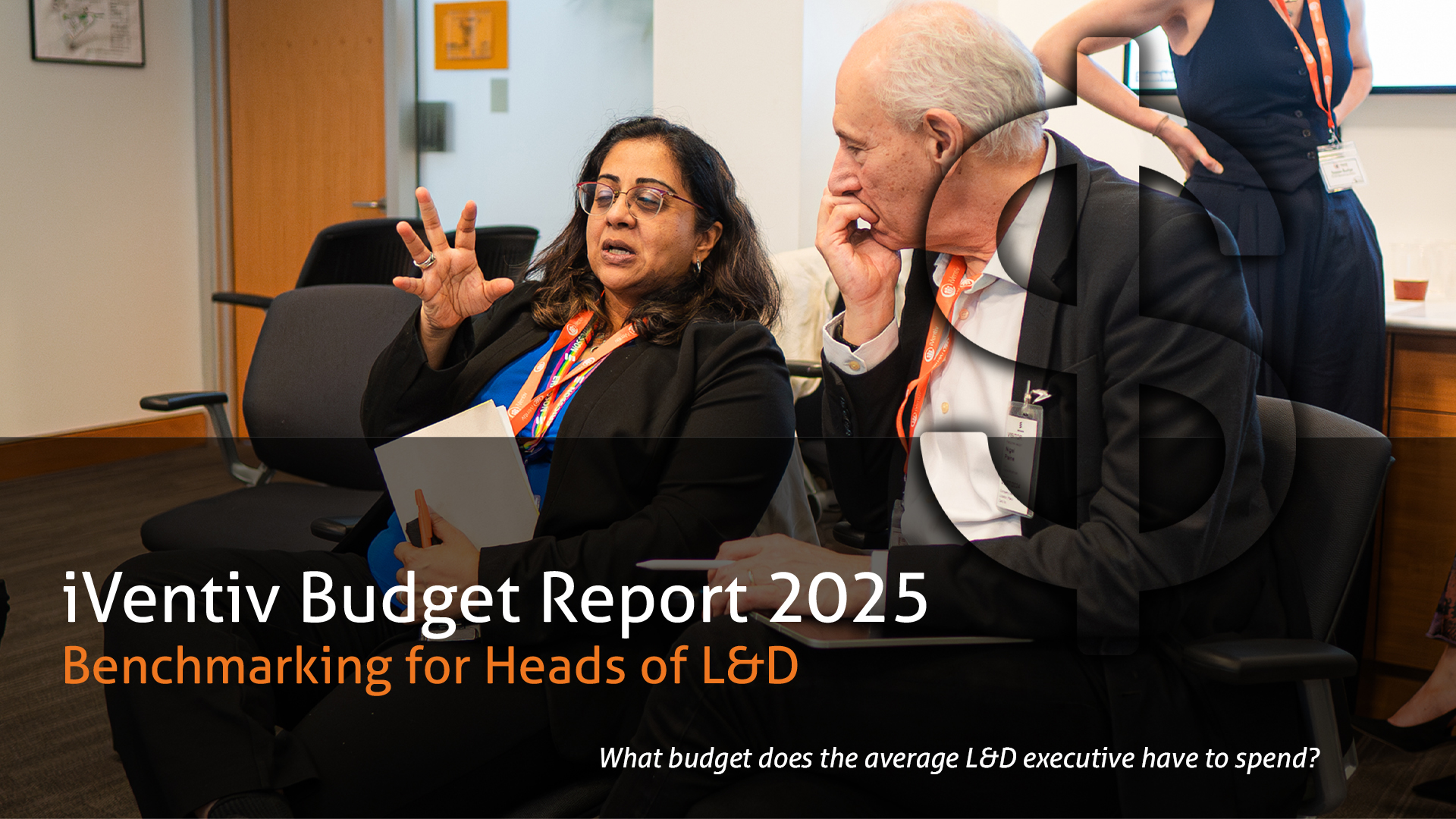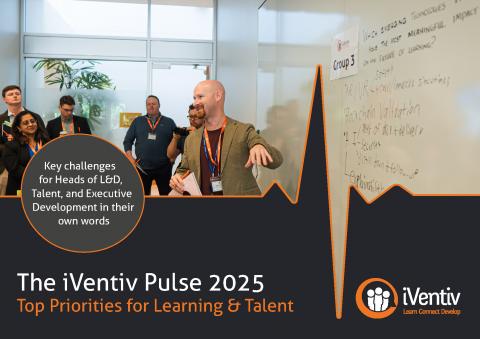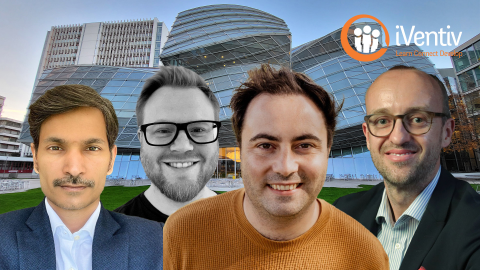Submitted by Kerry Summers on

What is the Average L&D Budget in 2025?
Let’s start with the top-line numbers.
- Mean L&D budget: $12.6 million
- Median L&D budget: $3 million
Yes, you read that right. The average budget is four times the median. That’s because just a handful of high-budget organisations (those spending more than $100 million) are pulling the average up. In fact, 74% of respondents fall below the mean — a reminder that big budgets don’t reflect the norm for most L&D teams.
If you’ve ever wondered, “Is my L&D budget good?” — you’re not alone. And the truth is, it depends on your organisation’s size, structure, and priorities.
How Much do Companies Spend on Learning per Employee?
That’s where things get even more interesting.
- Mean spend per employee: $1,580
- Median spend per employee: $100
The disparity on a per employee basis is even more stark. More than half of L&D leaders are working with under $200 per person. Meanwhile, in smaller organisations (under 5,000 employees), the per-head spend can exceed $5,000 — but in enterprises with over 100,000 employees, that drops to just $89.
It’s not about capability, but complexity. Bigger companies don’t always mean bigger per-person investment. Economies of scale, decentralised budgets, and split responsibilities all play a part.
In other words, don’t judge your learning resources by dollar signs alone. Context is everything.
Are the Biggest Companies the Biggest Spenders?
Sort of. While large organisations may manage the highest total budgets, that doesn’t always translate into more generous Learning investment per employee. Interestingly, leaders responsible for 50,000–100,000 employees are managing almost $10 million more than their counterparts in the 100,000+ category.
It’s a reminder that “bigger” doesn’t always mean “better resourced” — and that budget allocation is often influenced more by structure and scope than simple scale.
What Makes a Strategic L&D Budget?
It’s not just about the numbers. The data reveals a clear trend among those with higher budgets: they’re doubling down on future-focused priorities.
- 71% of L&D leaders with budgets over $100 million say Reskilling and Upskilling is a top focus.
- 79% of those responsible for 100,000+ employees cite Artificial Intelligence as a key priority.
- “Future of Work” initiatives are more common in companies spending over $10 million annually.
The organisations investing the most are moving fastest towards skills transformation, AI readiness, and cultural change. For those leaders, perhaps, getting ahead of the pace of change is the driving force.
Download the Full Report
This blog scratches the surface — but if you’re responsible for setting, defending, or selling into an L&D budget, download the full iVentiv L&D Budget Report 2025 for:
• Data on L&D budgets by organisation size
• Benchmarks for per-employee spend
• Analysis of what top-spending teams are prioritising











